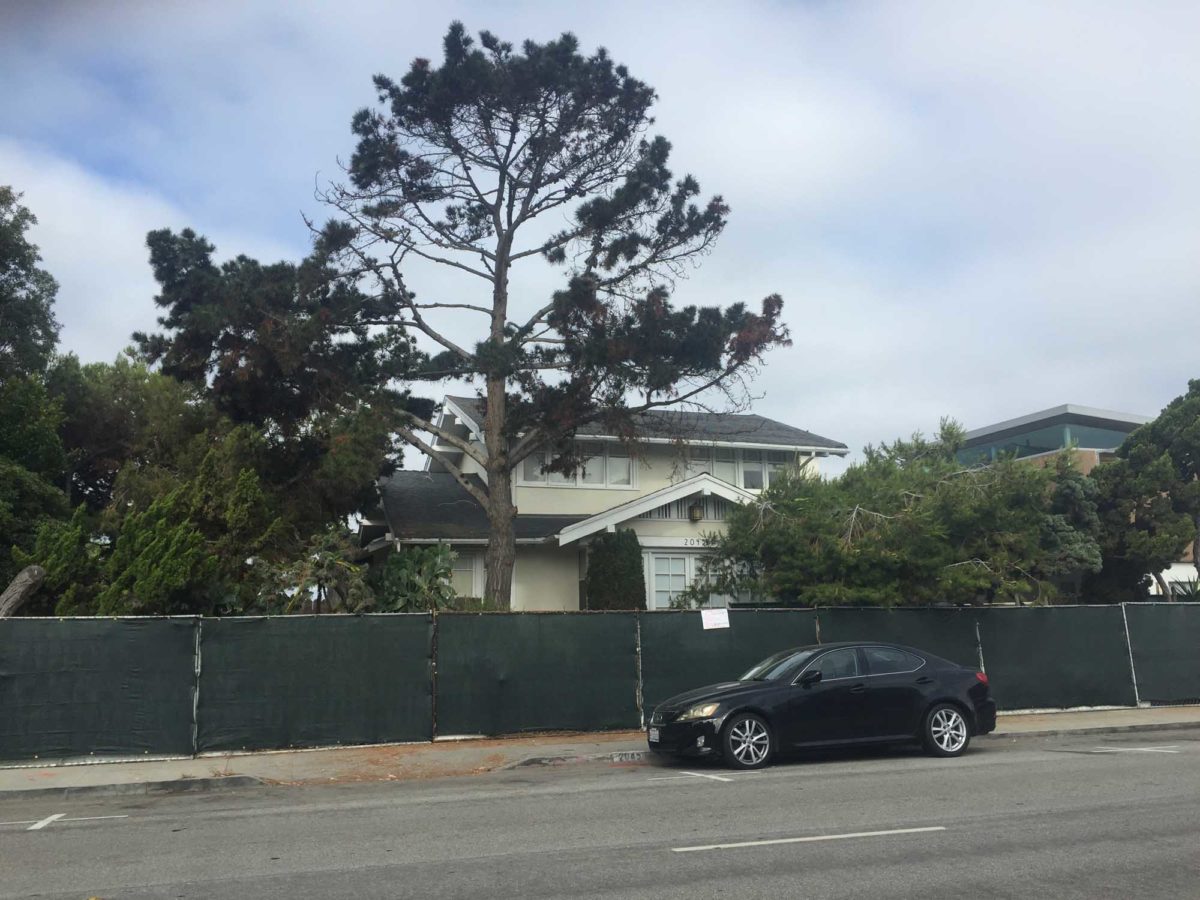Updated rules for city’s public trees starting to take root

A tree fronting a home on Monterey Boulevard died in 2017 after a developer failed to maintain the tree during construction, a lapse the city is trying to remedy with new rules for public trees. Photo
If a tree falls in the forest but nobody is around to hear it, does it make a sound? And if a public tree must come down in Hermosa Beach, who foots the bill?
Hermosans may not be much closer to solving the age-old philosophical puzzle, but the city is inching toward answers to the more practical question, which has bedeviled staff and led to resident outrage about the destruction of older trees in the public right-of-way. The city’s Public Works Commission took up the issue last week, and attempted to thread a path among several potentially competing principals, including incentivizing more greenery, protecting residents from excessive fees, and limiting the expense incurred by city staff.
The commission’s recommendations support keeping much of the city’s municipal code in place. If eventually approved by the City Council, the changes could clarify property owners’ obligations, limit the cost to residents of putting new trees in front of their homes, and up the penalties associated with allowing public trees to die.
“We want to keep in mind how to encourage good behavior and how to discourage bad behavior,” said Commissioner David Grethen.
Current city law allows property owners to apply to plant trees on the “parkway” adjacent to the property, which the municipal code defines as the portion of public right-of-way that is not paved over. And when a property owner wants to remove an otherwise healthy public tree, the request comes before the Public Works Commission.
As is the case with most cities in California, Hermosa’s code also makes residents responsible for upkeep of existing parkway trees fronting their homes. While the “parkway” can include trees planted in green space in between the sidewalk and the curb, it can also include land homeward of a sidewalk, even into a front yard, depending on how wide the right-of-way is on a given street. This was the case in the fall of 2017, when the commission struggled with the fate of a century-old pine on Monterey Boulevard. The tree was eventually cut down after it became a hazard to the public, but a city arborist concluded that construction on the property, which is owned by L.A. Kings player Drew Doughty, “damaged the tree beyond restoration,” Public Works Director Glen Kau wrote in a letter to Tomaro Design Group.
The developer had not obtained the proper permits, and the case prompted reforms in how the city assesses the fate of its trees. Starting last year, developers wishing to grade or demolish a property must notify both the building and public works departments, so that staff can work with construction crews to see which trees on a property require permission to remove. But, with the Monterey case in mind, commissioners urged code updates to allow for stiffer penalties for failing to maintain a tree.
“Currently, the infraction is not severe enough. We’ve seen egregious behavior, but we can only fine them $100. There’s not incentive to go after them,” said Commissioner Andrea Giancoli.
In other cases, however the commission’s recommendations tilted toward limiting tree-related costs to which homeowners could face or be exposed.
For example, in cases in which a tree in the public right-of-way causes damage to a sidewalk, such as through the growth of its roots, state law technically gives cities the ability to charge homeowners for both the removal of the tree and fixing the sidewalk. But because the latter can quickly become expensive, cities are often hesitant to put the cost on residents, said Public Works Superintendent Ells Freeman. In Hermosa, although current law gives the city the power to stick residents with the bill, it’s almost never done in practice, and commissioners recommended that the council formalize that into the code.
“That’s been the compromise: homeowners, if you remove the tree, then we’ll come and repair the sidewalk. It’s been working out pretty good to be honest,” Freeman said.

